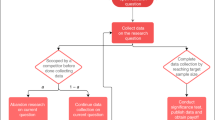Abstract
Academic papers, like genes, code for ideas or technological innovations that structure and transform the scientific organism and consequently the society at large. Genes are subject to the process of natural selection which ensures that only the fittest survive and contribute to the phenotype of the organism. The process of selection of academic papers, however, is far from natural. Commercial for-profit publishing houses have taken control over the evaluation and access to scientific information with serious consequences for the dissemination and advancement of knowledge. Academic authors and librarians are reacting by developing an alternative publishing system based on free-access journals and self-archiving in institutional repositories and global disciplinary libraries. Despite the emergence of such trends, the journal monopoly, rather than the scientific community, is still in control of selecting papers and setting academic standards. Here we propose a dynamical and transparent peer review process, which we believe will accelerate the transition to a fully open and free-for-all science that will allow the natural selection of the fittest ideas.

Similar content being viewed by others
References
Bergstrom, C. T., & Bergstrom, T. C. (2004). The costs and benefits of library site licenses to academic journals. Proceedings of the National Academy of Sciences, 101(3):897–902.
Buela-Casal, G., Perakakis, P., Taylor, M., & Checa, P. (2006). Measuring internationality: Reflections and perspectives on academic journals. Scientometrics, 67(1):45–65.
Chan, L., Kirsop, B., & Arunachalam, S. (2006). Open access archiving: The fast track to building research capacity in developing countries. Science and Development Network, 1.
Dawkins, R. (2006). The selfish gene. NY, USA: Oxford University Press.
Directory of open access journals (DOAJ). (2009). http://www.doaj.org. Accessed 3 June.
Harnad, S., Brody, T., Vallières, F., Carr, L., Hitchcock, S., Gingras, Y. et al. (2008). The access/impact problem and the green and gold roads to open access: An update. Serials Review , 34(1):36–40.
Plotkin, N. (2009). MIT will publish all faculty articles free in online repository. http://tech.mit.edu/V129/N14/open\_access.html. Accessed 4 July.
Registry of Open Access Repositories (ROAR). (2009). http://roar.eprints.org/. Accessed 3 June.
Romeostats. (2009). Journal policies—summary statistics so far. http://romeo.eprints.org/stats.php. Accessed 3 June.
Taylor, M., Perakakis, P., & Trachana, V. (2008). The siege of science. Ethics in Science and Environmental Politics (ESEP), 8(1), 17–40.
Thomson. Journal Citation Reports. http://thomsonreuters.com/products_services/scientific/Journal\_Citation\_Reports. Accessed 3 June 2009.
Van Orsdel, L. C., & Born, K. (2008). Periodicals price survey 2008 embracing openness. Library Journal, 133(7), 6.
Author information
Authors and Affiliations
Corresponding author
Rights and permissions
About this article
Cite this article
Perakakis, P., Taylor, M., Mazza, M. et al. Natural selection of academic papers. Scientometrics 85, 553–559 (2010). https://doi.org/10.1007/s11192-010-0253-1
Received:
Published:
Issue Date:
DOI: https://doi.org/10.1007/s11192-010-0253-1




